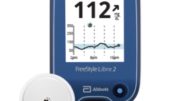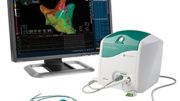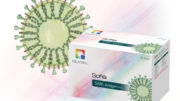
September 4, 2020 – Abbott (Abbott Park, IL) announced the start of the LIFE-BTK clinical trial to evaluate the safety and effectiveness of the company’s new Esprit BTK Everolimus Eluting Resorbable Scaffold System. This is the first Investigational Device Exemption (IDE) trial in the U.S. to evaluate a fully resorbable device to treat blocked arteries below the knees, or critical limb ischemia, in people battling advanced stages of peripheral artery disease.
There are no drug-eluting stents (DES), drug-coated balloons, or bare-metal stents approved for use below the knee (BTK) in the U.S. With the limited options for BTK, new treatment options are needed. The U.S. Food and Drug Administration (FDA) has granted Esprit BTK breakthrough device designation, which streamlines review and pre-market approval timelines.
Unlike traditional metal stents, Abbott’s Esprit BTK System is not a permanent implant; it provides support to an artery immediately after a balloon angioplasty, preventing the vessel from reclosing. Once implanted, the scaffold delivers a drug over a few months that promotes healing and keeps the artery open. The scaffold is naturally resorbed into the body over time, like dissolving sutures, and ultimately leaves only a healed artery behind. Abbott is a pioneer in bioresorbable scaffolds. Long-term clinical data from a meta-analysis of randomized Absorb trials suggested that bioresorbable scaffolds might be an acceptable alternative to metallic DES for many patients with coronary artery disease.
Once fully enrolled, the LIFE-BTK trial will evaluate the Esprit BTK resorbable scaffold in 225 patients at centers around the world. The study is the first of its kind and an evolution of prior studies examining resorbable technology in treating diseased vessels and blocked arteries.




